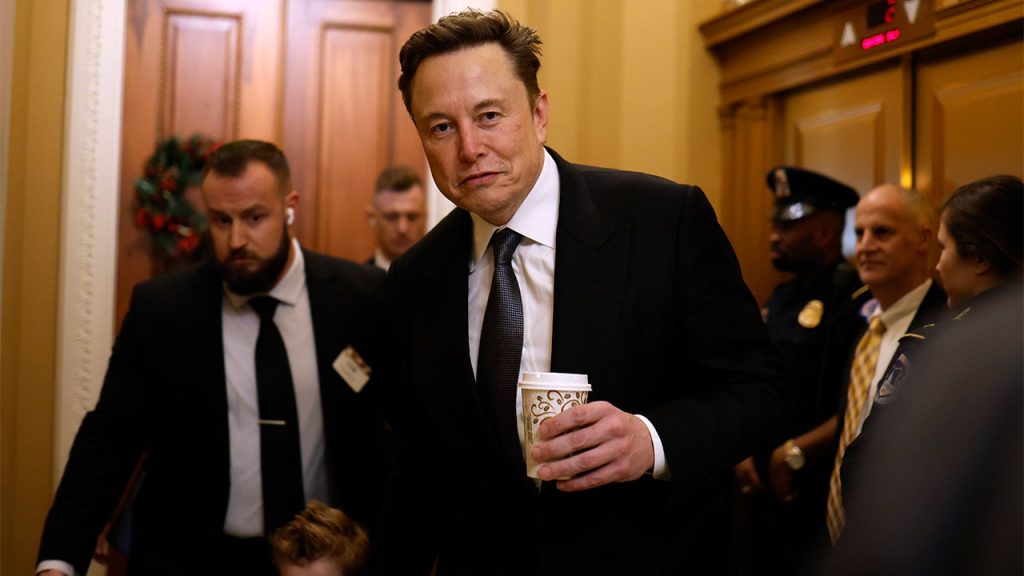Elon Musk, the CEO of Tesla and SpaceX, has initiated a controversial endeavor to reform the federal government through an initiative known as DOGE (Declaration of Governmental Efficiency). This project aims to modernize federal technology, eliminate waste, and streamline the bureaucracy, ultimately enhancing governmental efficiency and productivity. Musk has assembled a young team of software engineers, some as young as 19, to spearhead this ambitious undertaking. These individuals, described by Musk as some of the world’s best software engineers, have been granted high-level security clearances and access to critical government systems, raising concerns among some critics.
The core team comprises six individuals: Akash Bobba, Edward Coristine, Luke Farritor, Gautier Cole Killian, Gavin Kliger, and Ethan Shaotran. Each member brings unique skills and experiences to the table. Bobba, lauded for his exceptional coding abilities, has a background in finance and technology, with internships at prestigious firms like Bridgewater Associates, Meta, and Palantir. Coristine, a recent high school graduate, boasts experience in mechanical engineering and physics, and previously worked on Musk’s Neuralink project. Farritor, a Thiel fellow and former SpaceX intern, achieved notoriety for decoding a 2,000-year-old Greek scroll using AI. Shaotran, a Harvard computer science student, founded the OpenAI-backed startup Energize AI. Killian’s background is in high-frequency financial trading and algorithms, while Kliger, with experience at AI company Databricks, expresses strong political views on his Substack, including advocating for drastic changes in government leadership.
These young engineers have been assigned various roles within the federal government, primarily at the Office of Personnel Management (OPM) and the General Services Administration (GSA). Their placement in these agencies suggests a focus on overhauling personnel management practices and modernizing government IT infrastructure, which are key components of DOGE’s objective to boost efficiency. The team’s access to high-level government systems has drawn criticism and scrutiny, particularly from Democratic lawmakers who question the propriety of such access for individuals outside the traditional government channels.
DOGE’s activities have sparked significant controversy. Democrats have accused DOGE of operating as an “unelected shadow government” and exceeding its authority by making spending decisions and shutting down programs without proper Congressional oversight. Senator Chuck Schumer, for example, has publicly denounced DOGE and called for Congressional action to restore the rule of law. Critics have also voiced concerns about potential conflicts of interest stemming from Musk’s personal and business ventures, as well as the potential for political bias within the DOGE team, particularly given Kliger’s publicly expressed political views.
Musk, however, has defended DOGE’s work, framing it as a crucial effort to combat bureaucratic waste and restore power to the people. He argues that the “hysterical reactions” from critics are evidence that DOGE is addressing critical issues within the government. Musk has highlighted DOGE’s findings, alleging, for example, that Treasury officials routinely approved payments to fraudulent entities, bolstering his argument for the necessity of drastic reform. He has emphasized that this is a unique opportunity to dismantle entrenched bureaucracy and empower the American people. The White House has also defended DOGE, emphasizing its compliance with federal law and its mission to improve government accountability and efficiency. They portray DOGE’s work as disruptive but necessary, aligning with President Trump’s mandate.
The clash between DOGE and its critics underscores a broader debate about the role of private individuals and entities in shaping public policy. While Musk frames DOGE as a necessary intervention to improve government function, opponents argue that its operations circumvent established democratic processes and raise significant concerns about transparency and accountability. The long-term impact of DOGE on the federal government remains to be seen, but its initial actions and the subsequent reactions have ignited a fierce debate about the future of governance and the appropriate balance between innovation and established procedures. The controversy surrounding DOGE highlights the growing tension between technological disruption and traditional governmental structures, raising fundamental questions about the balance of power and the role of expertise in shaping public policy.


